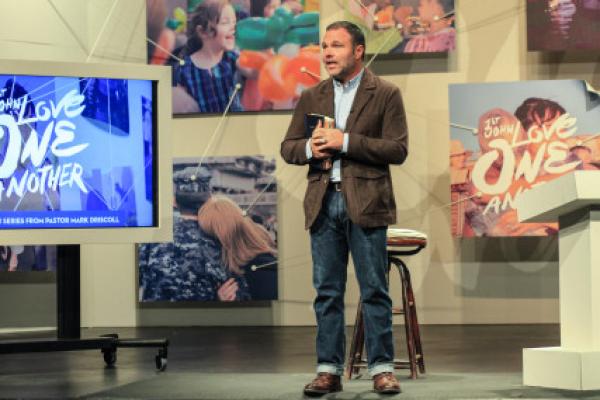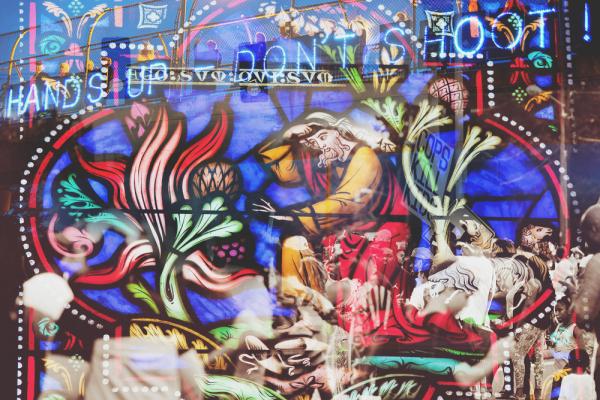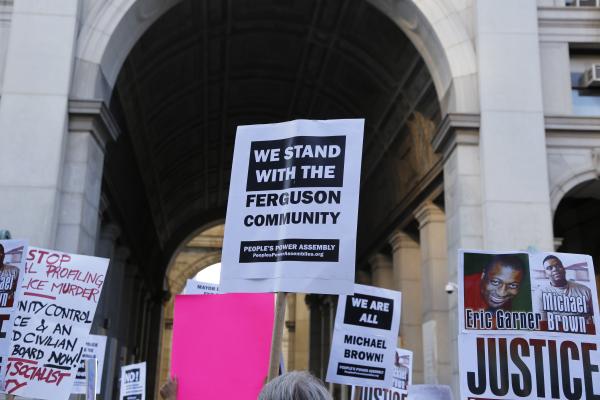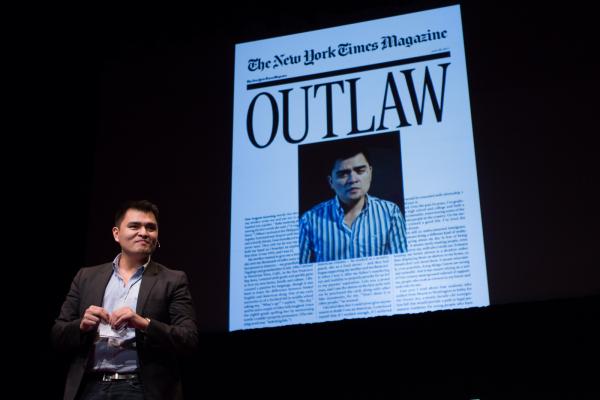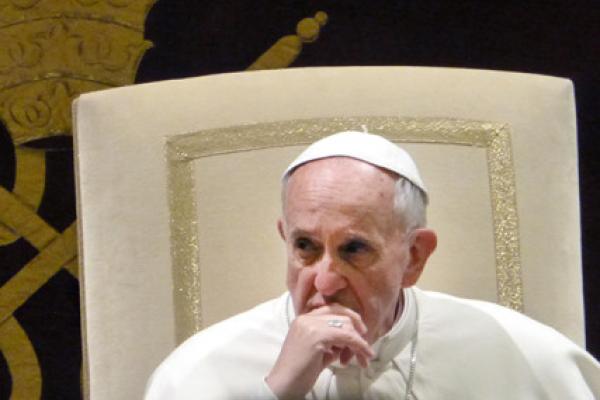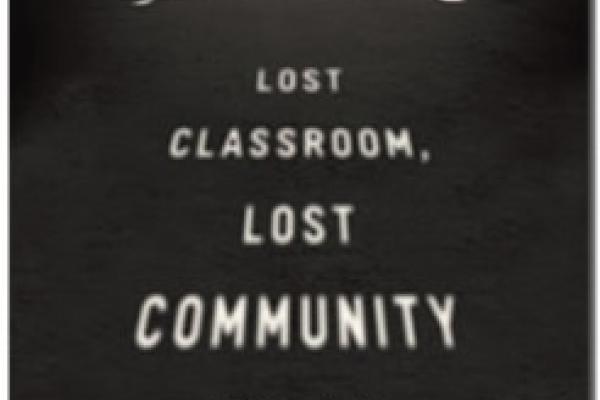Controversial Seattle megachurch founder Mark Driscoll will step down for at least six weeks while church leaders review formal charges lodged by a group of pastors that he abused his power.
The 43-year-old pastor has been under fire in recent months for plagiarism, inappropriate use of church funds, and improper behavior toward subordinates.
Returning from vacation Sunday, Driscoll addressed Mars Hill worship services through a pre-recorded message.
“I want to say to my Mars Hill family, past and present, I’m very sorry. I genuinely mean it,” Driscoll said in his address. “I’m very sorry for the times I’ve been angry, short or insensitive. I’m very sorry for anything I’ve done to distract from our mission by inviting criticism, controversy or negative media attention.”
Driscoll said he will not do any outside speaking for the foreseeable future and postpone the publication of his next book.
Like many of you, I’ve been overwhelmed and deeply saddened by the events that have transpired in Ferguson, Mo. And at times I’ve felt helpless, 350 miles away in Cincinnati, as friends of mine are in Ferguson praying, marching, organizing, and working for peace and justice.
In my conversations with friends of color, I have witnessed their pain and frustration and deep angst over the events of Ferguson. The past two weeks have hit very close to home for them.
With white friends, the response has been mixed, but the overwhelming sentiment is one I’ve already identified: helplessness. I am not satisfied with this response. I believe there are ways we can respond, bear witness, be in solidarity and work for justice in this moment. Our love for God and neighbor demands we engage. If you are like me, you are praying without ceasing for the Shalom, peace, and justice of God to reign in the hearts and minds and streets of Ferguson and throughout this nation and world. So how can we pair our prayers with constructive action?
Here are ten ways white Christians can respond to Ferguson.
"Then the LORD said, 'I have observed the misery of my people…I have heard their cry…Indeed, I know their sufferings…’ - Exodus 3:7
For the last few weeks, the eyes of America have been riveted on the town of Ferguson, Missouri, a formerly little-known suburb of St. Louis. It was there on Aug. 9 that an unarmed African-American teenager named Mike Brown was shot six times by police, sparking ongoing protests and demonstrations by grief-stricken and outraged citizens. Clashes between demonstrators and heavily armed local police, highway patrol, and the Missouri National Guard have been the subject of extensive coverage and all manner of commentary across broadcast and social media.
These demonstrations in Ferguson represent something more than just lament for the tragic death of Mike Brown. They are an outcry at the demonization of black men, racial profiling, institutional racism, intergenerational poverty, the militarization of law enforcement, and a culture of incarceration in America. Over the last three weeks, Ferguson has become a flash point for urgent issues facing minority communities, issues which have been largely unnoticed or ignored by the majority white culture. The #Ferguson hashtag no longer just refers to the events happening in Ferguson but has come to represent a national conversation about the toll that institutional racism and its many diabolical expressions have taken on our fellow Americans.
In the days following Mike Brown’s death, columnist Leonard Pitts, Jr. described the protests as “an act of outcry, a scream of inchoate rage. That’s what happened this week in Ferguson, Mo. The people screamed.” These screams echo of the cries that God heard from the Hebrews enslaved in ancient Egypt.
As the Rev. Barbara Williams-Skinner collected signatures for a statement by leaders of African-American church groups about the Ferguson, Mo., police shooting of Michael Brown, she found more people wanted to join in.
The general secretary of the National Council of Churches wanted to add his name; an Asian-American evangelical leader, too.
What started out as a “Joint Statement of Heads of Historic African American Church Denominations” has become an interracial cry for justice.
“It’s touching hearts of people who have sons and who know that their sons would not be treated this way,” said Williams-Skinner, co-chair of the National African-American Clergy Network, on Thursday. “They know it’s wrong. They know it’s wrong before God. And they are responding on a human level.”
This week, I saw a torrent of debate about who reached for the gun and why police don’t shoot people in the leg rather than taking their lives. Neither angle seems to capture the bigger story at play on the evening news and fueling protest marches across Missouri.
On Sunday I preached to my church on race, current affairs and how to process — in a biblically loving way — what has been happening to brothers and sisters in Ferguson. (See video below) Talking about race and current affairs can be taboo in evangelical churches, and it was interesting as I saw a few couples exit the back door as I spoke.
Last week, I penned my thoughts on why we should pray for the saints in Ferguson. It was the outgrowth of my personal frustration and the pain I feel over the misunderstandings on race that can pervade the majority culture.
Race, Current Affairs & Prayer from Antioch Church on Vimeo.
Earlier this week Jose Antonio Vargas, joined by ten other undocumented immigrants, announced the 1 of 11 Million campaign in Washington to urge the delay of deportations for the millions of documented immigrants in the United States. Vargas is founder of Define American, a national organization that uses stories to shift the narrative on immigration in America, and hopes to influence the executive action debate.
The campaign plans to tell the personal stories of 11 people who come from diverse backgrounds and whose experiences reflect many of the 11 million undocumented immigrants in this country. By providing a snapshot of our complex, outdated, and unpredictable system, advocates hope that changes announced by Obama will address the needs of communities nationwide.
Last night, Washington, D.C., residents young and old gathered in the Columbia Heights neighborhood to protest the shooting of Michael Brown, stand in solidarity with those on the front lines of continued protests in Ferguson, Mo., and let our governmant and law enforcement officials know that #BlackLivesMatter. The protest was organized by a Howard University student who hails from St. Louis and "needed to do something" given the reports she received from friends and family on the ground in Ferguson.
About a dozen Sojourners employees were in attendance. Check out the video below with testimony from two protestors who spent some time over the last week in Ferguson.
The reality of climate change can be tough information to absorb, and if you’ve known for a while, it can just plain get you down. Yes, rising carbon pollution is leading to global warming. The impacts are already happening now, especially in poor countries and on our coasts. So now what? In the face of a problem on a global scale, what are we to do? Here are four suggestions.
1. Pray.
The massive scale of global warming is a reminder that we are only human. It’s overwhelming to think about and difficult to know where to start. The good news is, God is waiting for us to hand over all our burdens. This is God’s world, not ours – a perspective that can inform not only our outrage over what humans have done to the creation, but also our response. We can be the hands and feet of Christ, doing the work God calls us to do, but we are not the saviors of the world. Knowing that can be both humbling and strengthening. Prayer is a great place to start if you’re trying to figure out what to do about climate change, and it’s an equally important place to return to if you’ve been fighting the good fight for years (exhaustion and burnout are a real thing in this line of work!).
Pope Francis wrote to the president of Iraq, calling for an end to the “brutal suffering of Christians and other religious minorities” and urging political leaders to end the humanitarian crisis in the country.
Francis said in his letter to Iraqi President Fouad Massoum:
“I appeal to you with my heart full of pain while I follow the brutal suffering of Christians and other religious minorities who are forced to leave their homes, as their places of worship are destroyed.”
Cardinal Fernando Filoni, the pope’s official envoy to Iraq, delivered the pope’s message during his recent trip to that country. The two met at the Vatican on Thursday. The pope previously appealed to U.N. Secretary-General Ban Ki-moon to intervene to end the crisis.
Earlier this week, Francis revealed during a media conference with reporters that he was ready to travel to Iraq to try to find a solution to the ongoing violence.
What happens to a community when a Roman Catholic school closes its doors?
That’s the question Nicole Stelle Garnett and Margaret F. Brinig, two Notre Dame law professors, pondered as they studied closures in Chicago, Philadelphia, and Los Angeles.
There were 7,000 Catholic schools in the U.S. in 2010, down from 13,000 in 1960, according to the National Catholic Education Association. The decline, rooted in the migration of parishioners to the suburbs and the secularization of Catholic culture, has been dubbed the “closure crisis” within the church.
Religion News Service asked Garnett about what she and Brinig found in their investigation, which resulted in their new book: Lost Classroom, Lost Community: Catholic Schools’ Importance in Urban America.
The interview has been edited for length and clarity.
